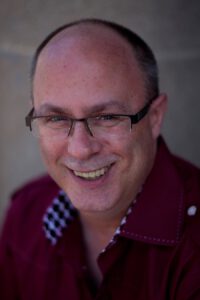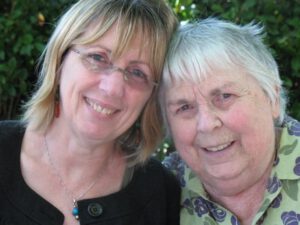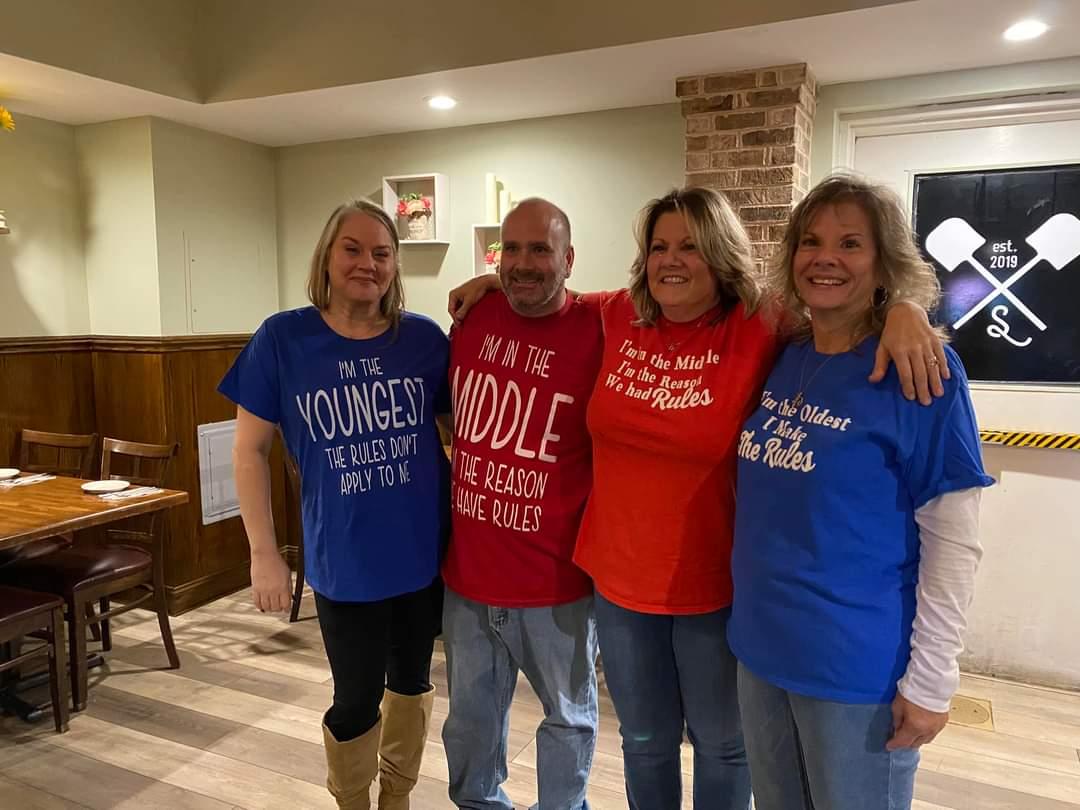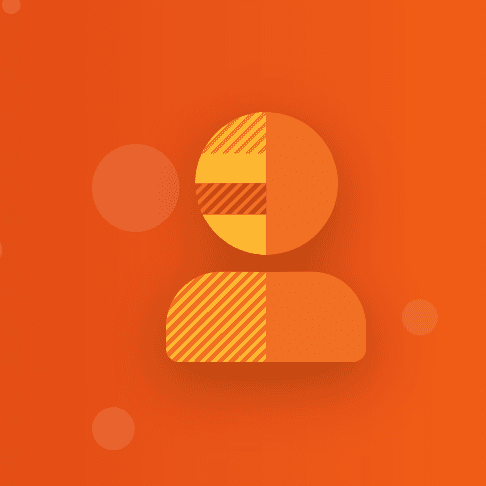In May, Neil Schwartzman opened an email message from a complete stranger.
“Hey,” it said. “I think you’re my brother.”
Neil is one of now thousands of 23andMe users who’ve discovered family relationships they never knew they had.
In June, we updated Relative Finder to make it easier to search for family connections. In just a few weeks 23andMe users have told us they’ve discovered more than 500 previously unknown relationships. People have linked up mostly with distant cousins, but a handful, like Neil, have found sisters, brothers, and even parents.
Neil, a 50 year-old Canadian activist who works to stop the spread of junk email, has seen his fair share of fake come-ons. But the email he got in May was different. It was a message from another 23andMe user showing that they were related through DNA.
 Neil Schwartzman found his sister, Jolie Pearl, on 23andMe
Neil Schwartzman found his sister, Jolie Pearl, on 23andMe
Stunned by the message he began corresponding with the woman. He had always wondered about his background and if he had relatives out there still living, because Neil was adopted when he was just 10 days old. He never knew his biological mother. Although he loved his adoptive parents, he always yearned to know more about his background. He made a few attempts to find his biological mother in the 1990s, but after getting nowhere, he gave up.
“Fast-forward to three years ago when I became a 23andMe member,” said Neil, executive director of the Coalition Against Unsolicited Commercial Email. “I’d some hope to find family somewhere, but really I had just turned 50 and I thought it’d be nice to know if I had any medical condition I should be concerned about.”
In early May of 2011 in California Jolie Pearl, a 53 year-old union organizer and mother of a 13 year-old daughter, had begun to play around with 23andMe’s Relative Finder for the first time.
“I hit the button to find your closest relative and this thing popped up, ‘a predicted sibling,’” Jolie said. “I thought maybe it was a mistake or that it was my half-brother.”
The next morning, Jolie went to her mother’s house and before going in she spoke briefly with her mom’s best friend.
“She matter-of-fact said to me, ‘yeah, you’re going to want to know about him,’” Jolie said.
Her mother’s best friend was one of only three other people who’d ever knew that Jolie had another brother who’d been given up for adoption.
At first Jolie felt anger, but then was overwhelmed by the thought that she had another younger brother. She said she instinctively felt protective toward him. When she talked to her mom, Jolie’s mother explained that indeed she’d given birth to a baby boy in 1960 and just 10 days after his birth she handed him over to another couple.
 Jolie Pearl with their mother
Jolie Pearl with their mother
“It was the most difficult thing she’d done in her life,” Jolie said. “But she felt she didn’t have a choice. She couldn’t raise both of us.”
After talking to her mom Jolie sent the email to Neil.
After the initial exchange of emails, Neil, who had a scheduled business trip to California, arranged to meet his new found sister.
The two had dinner together, talking so long that they closed the restaurant down. The next day they went together to visit Neil and Jolie’s mother. Neil stopped to buy some flowers, asking his sister what kind their mother liked. They settled on a potted orchid because it was more lasting than cut flowers.
For Neil, who had anxiously anticipated the moment, meeting his mother and sister wasn’t what he’d expected. He’d anticipated a “massive emotional event.”
What he got instead was something more “nuanced, subtle, deep.”
It was the start of a relationship, he said.
At the end of the conversation, Neil’s mother grabbed his hand and held it for a long time.
“He told me that physical connection meant so much to him,” Jolie said. “He said it was like electric shocks going through his system.”
Finding her raised so many emotions, and Neil was struck by weighty questions about what makes you who you are. His niece noticed how both he and his sister had similar nervous hand gestures. Both are union activists.
“So this caused me to reflect on what the components of a person are,” Neil said. “There are morals and values imparted on me partially by my circumstances, by my adopted parents, my experience, all the things that life brings us. Then there’s this genetic thing.”
His mother is an artistic person and so is he. They’re both highly intelligent and opinionated.
“It’s fascinating to think that for all the free will we pride ourselves in having so many things may be predetermined,” he said. “It’s something to think about.”
The family has arranged to gather again.
“Obviously I never expected any of this when I signed up,” Jolie said. “It’s been the best thing. I want to thank 23andMe.”
Neil, too, expressed his gratitude, even citing 23andMe as an example of the miracle of modern science and the promise of the internet after receiving an award recently for the work he’s done to curb junk email.
“It’s beyond awesome,” said Neil. “I couldn’t be happier. I mean I’d really given up all hope. I can’t say how absolutely grateful I am to 23andMe for facilitating this.”
23andMe provides genetic testing services for informational purposes; your results may or may not help you to search for or identify relatives or family members.
What’s your story? If you’re willing to share, we want to hear. Drop us a line at stories@23andme.com.



